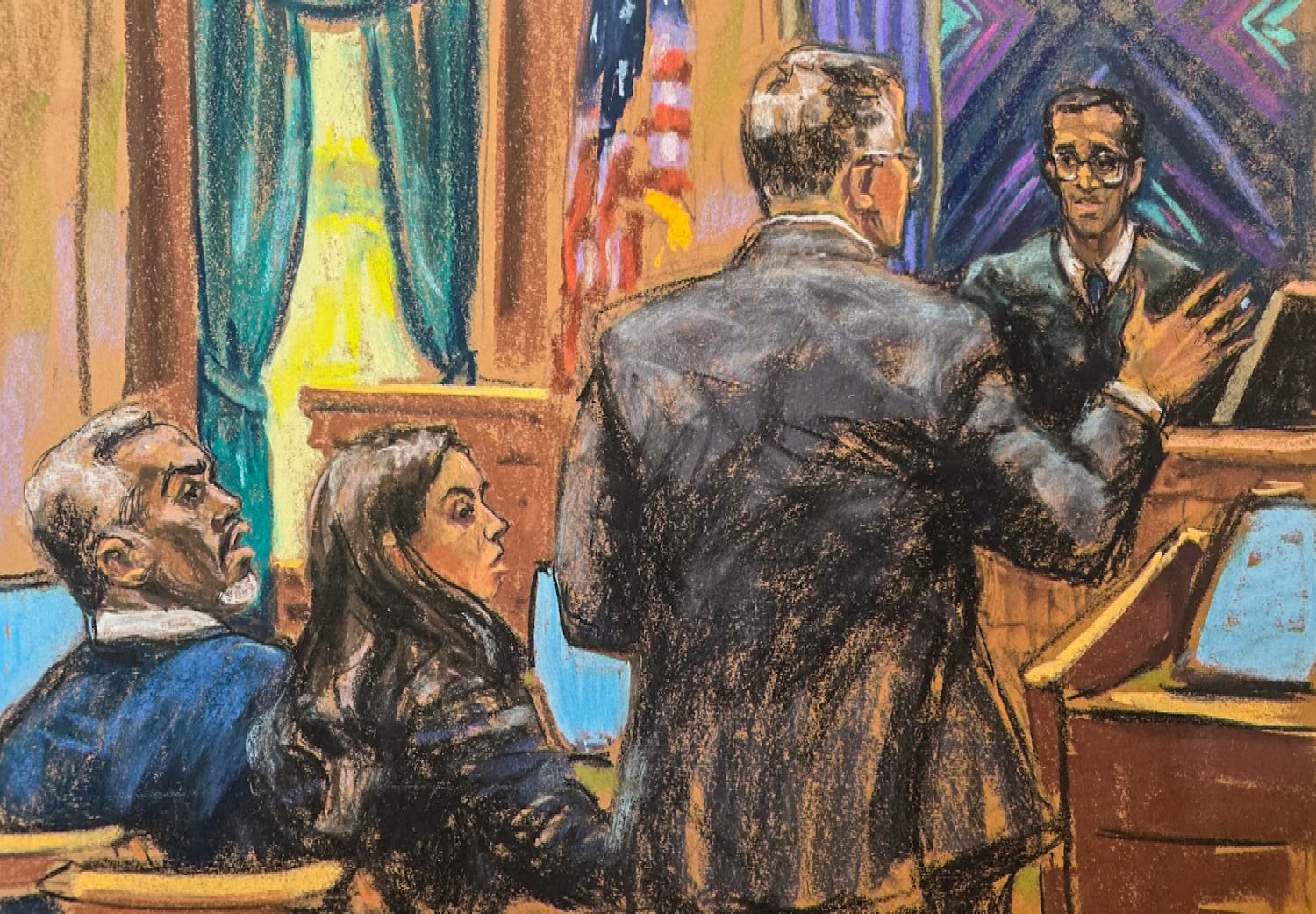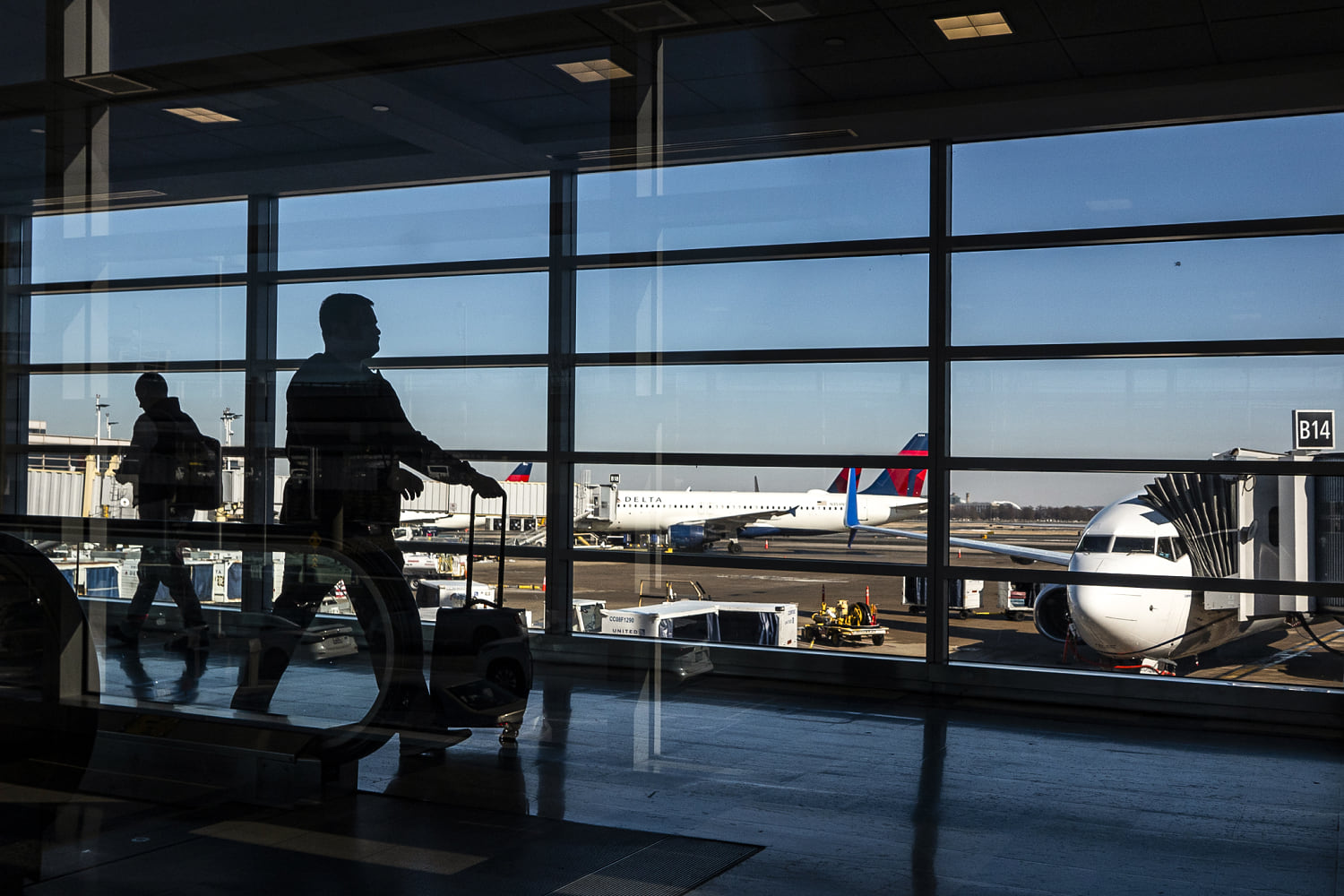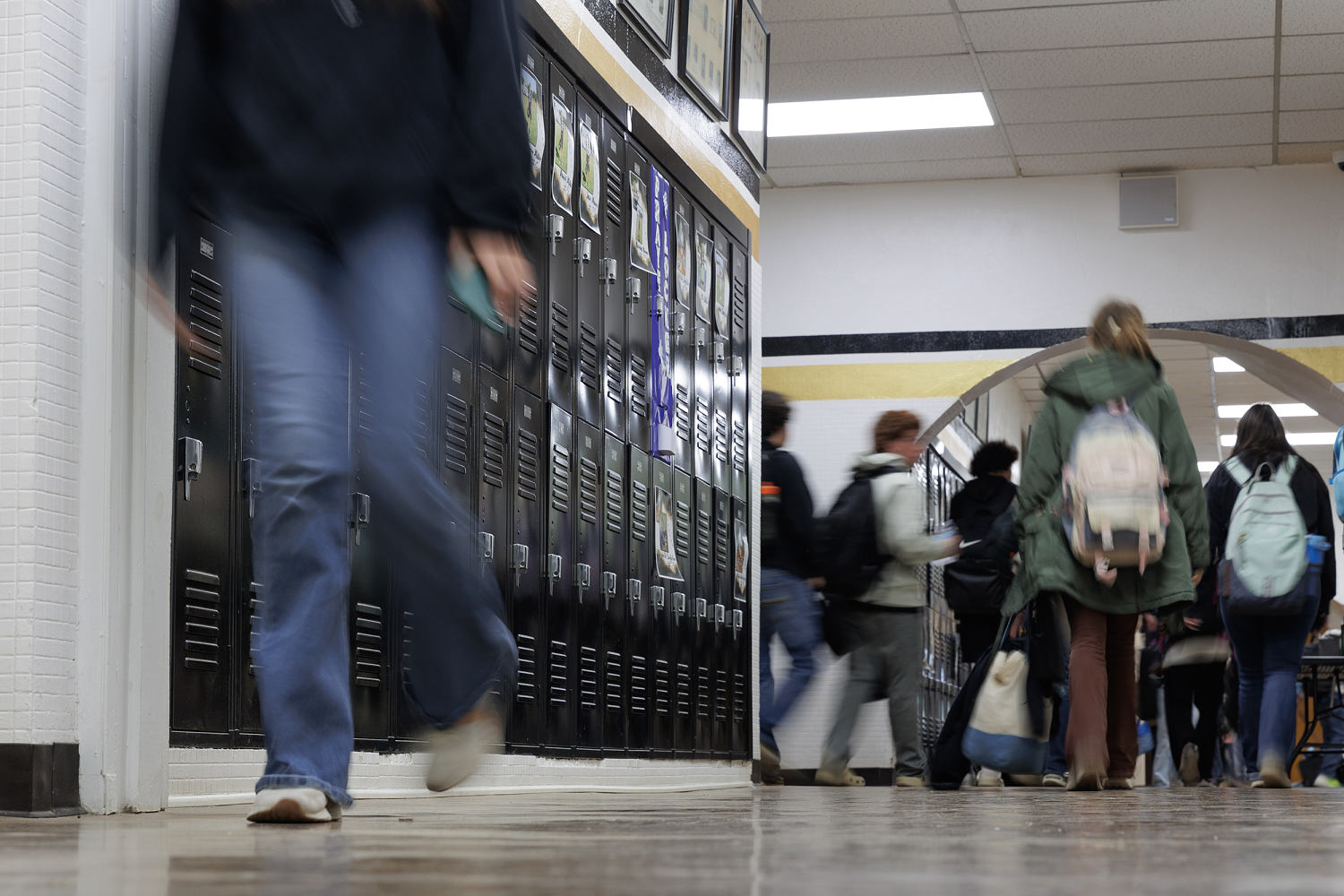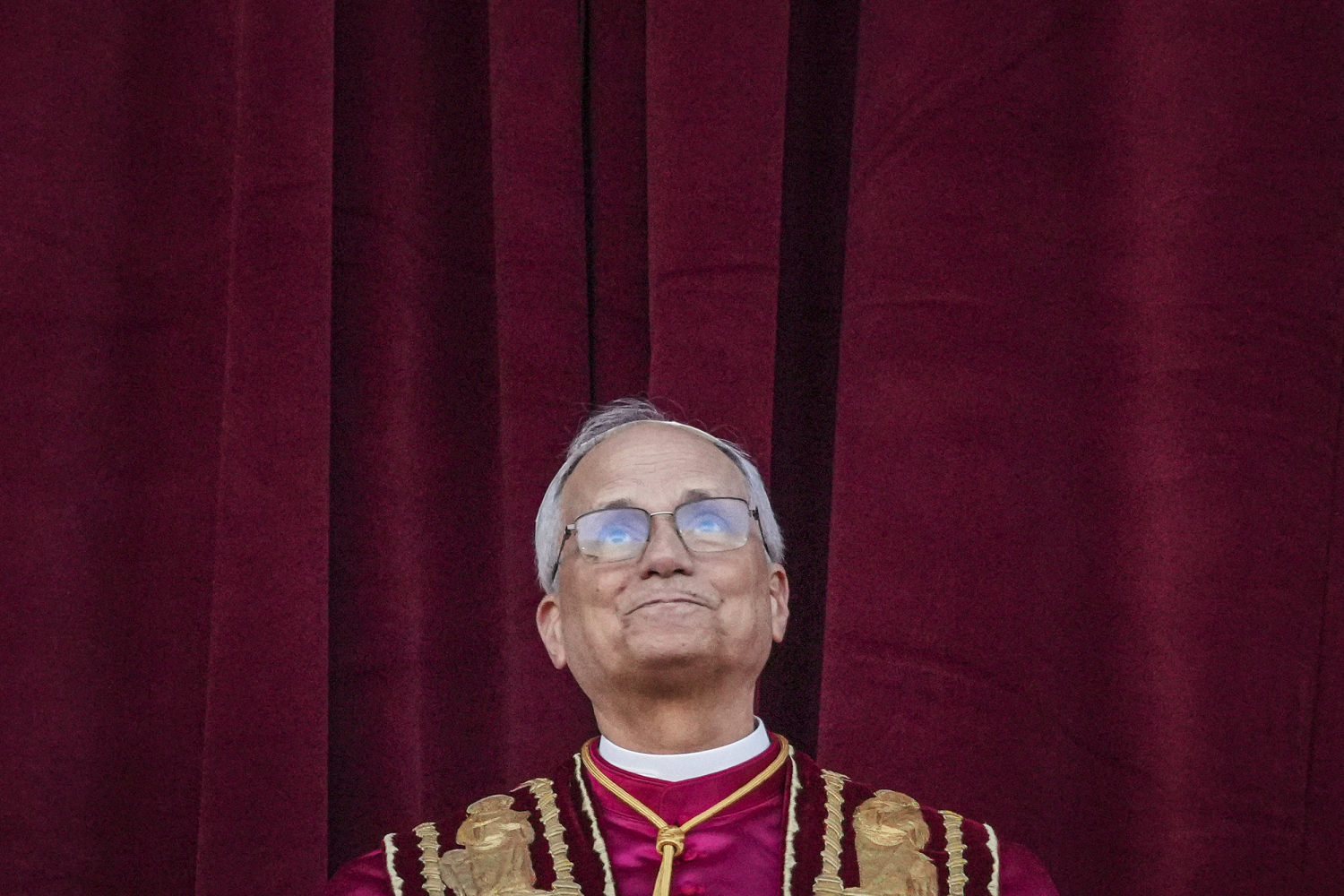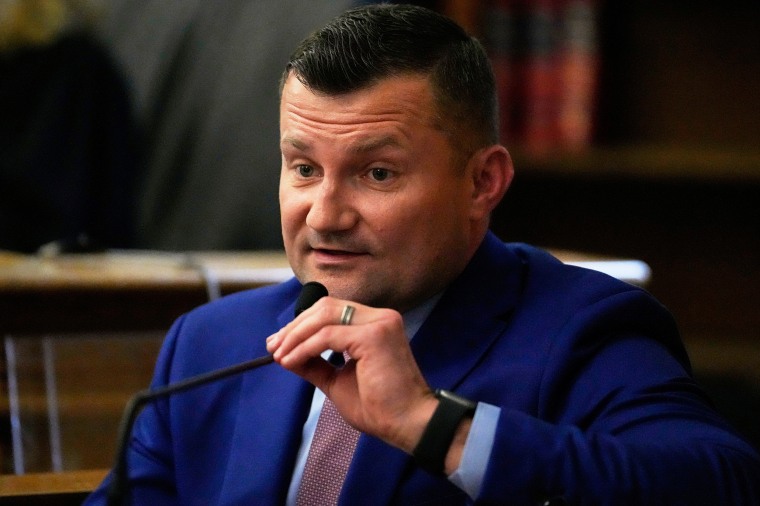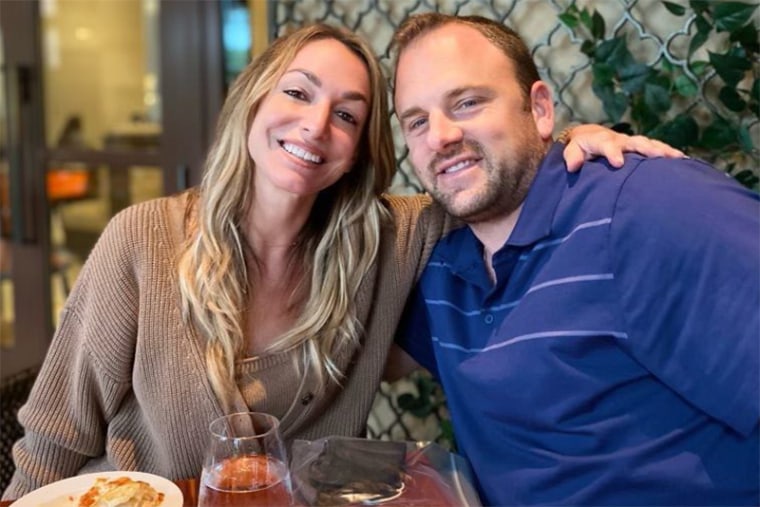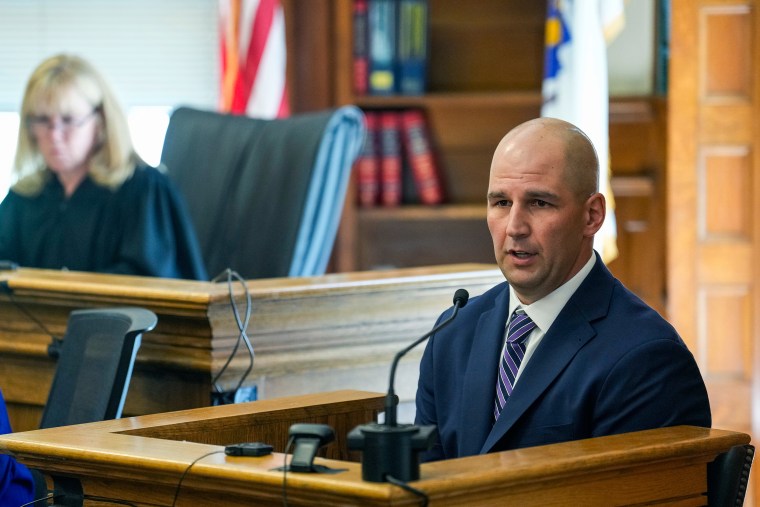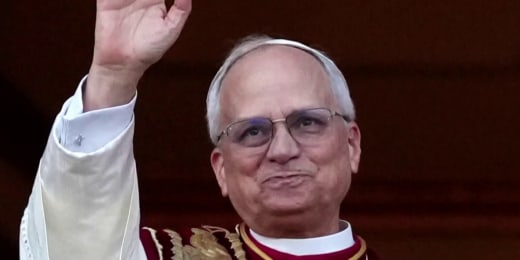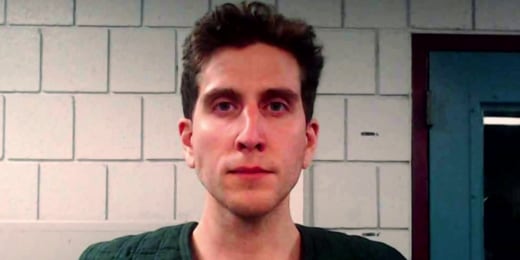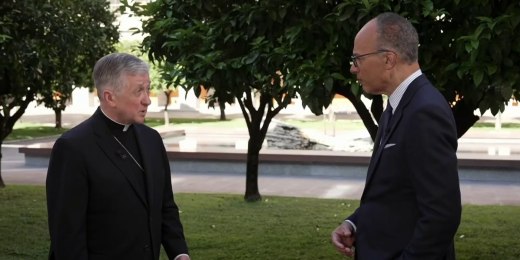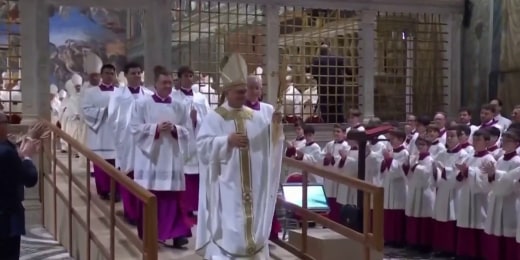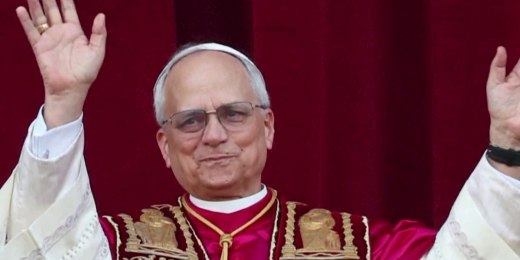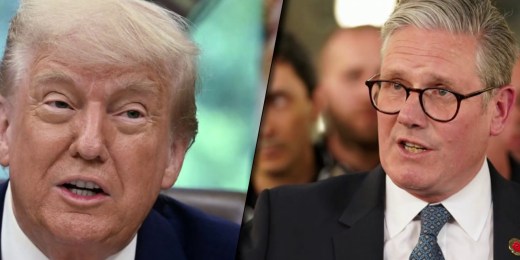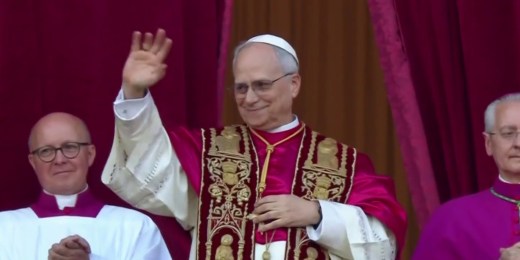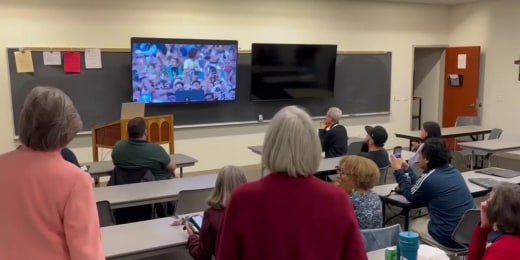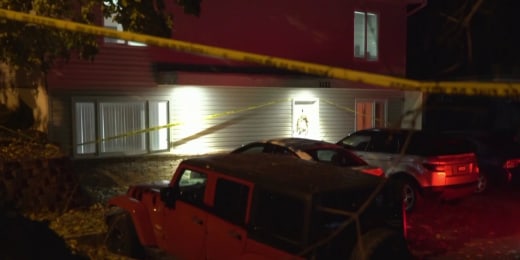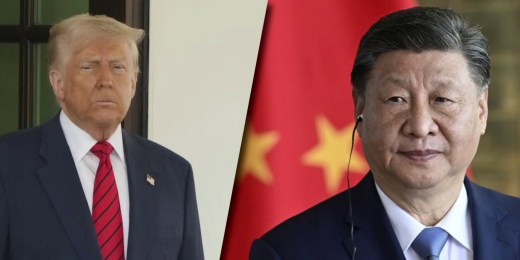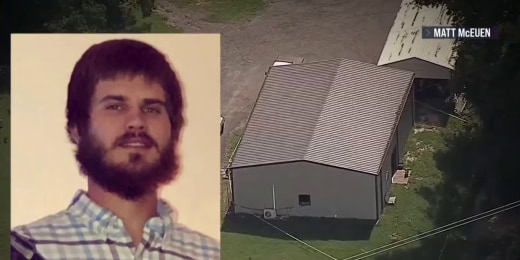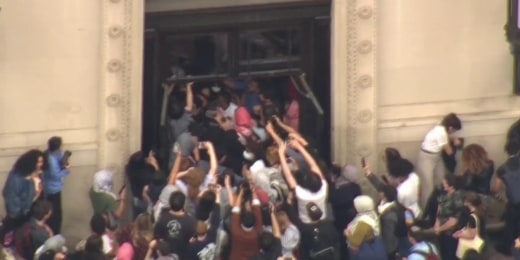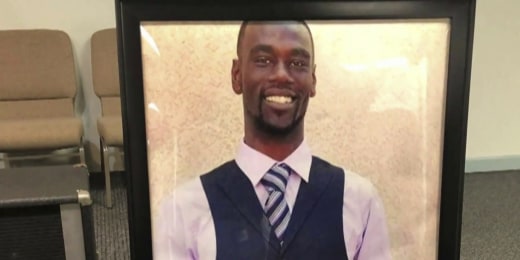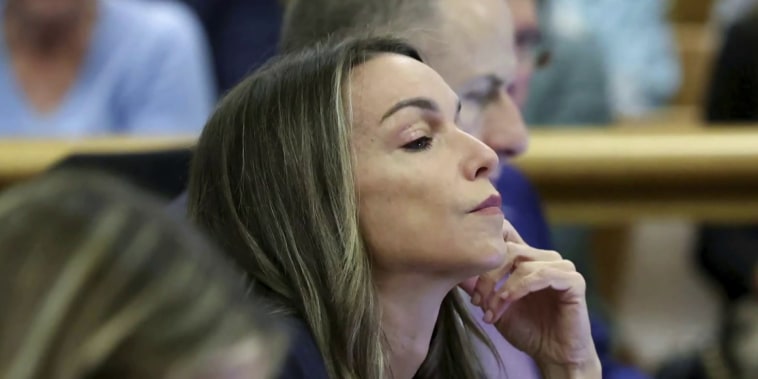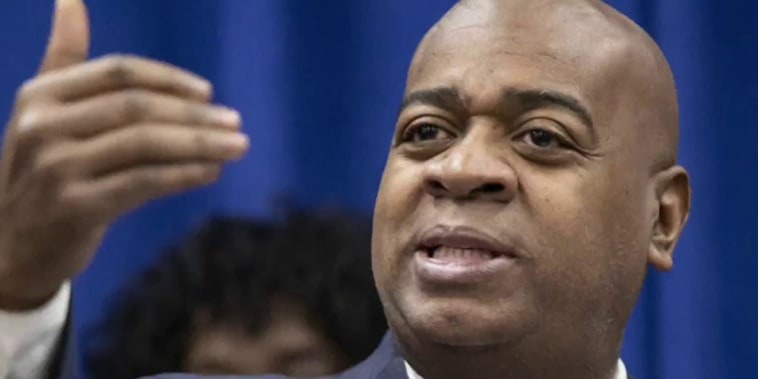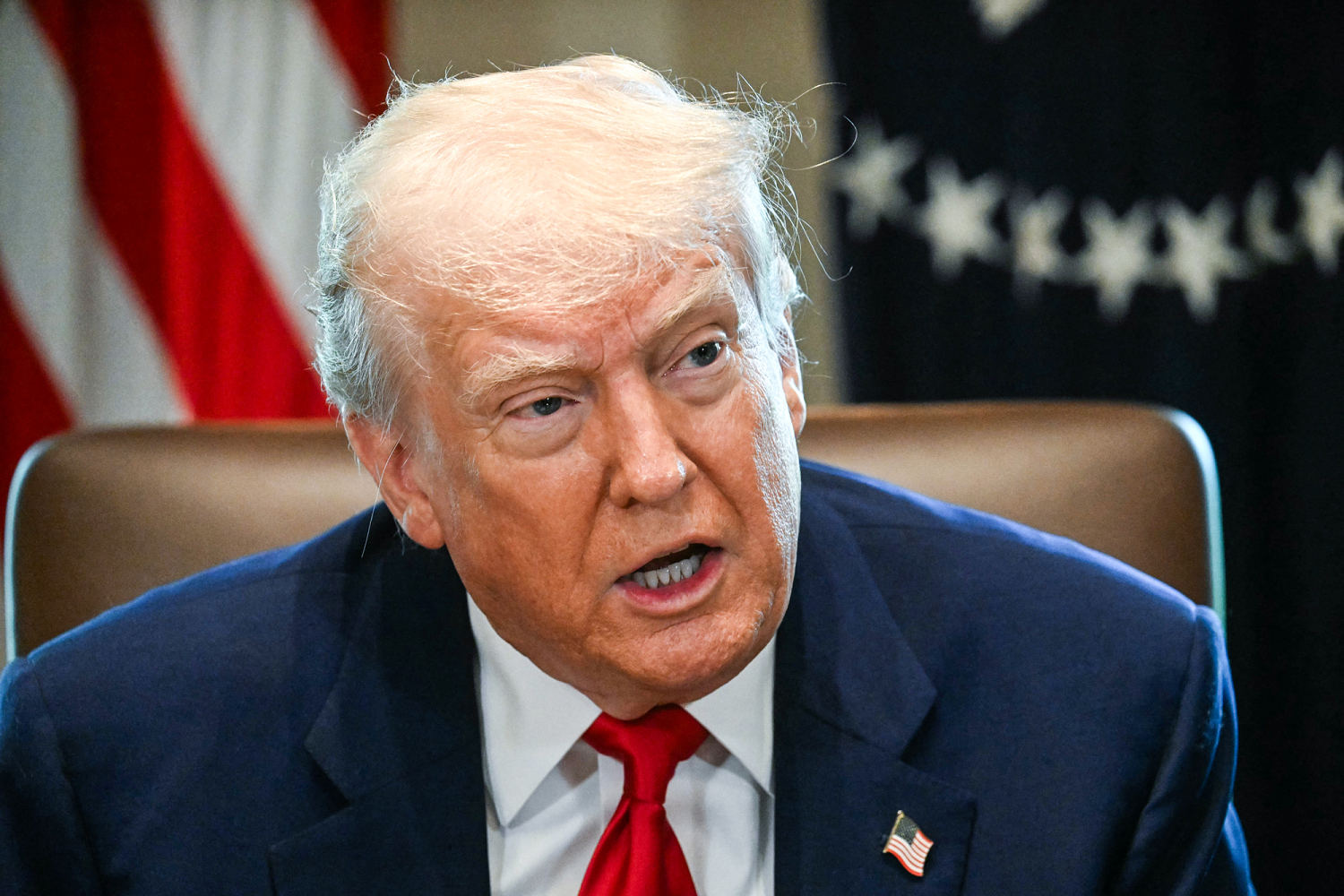In the eyes of many LGBTQ Catholics, the late Pope Francis created a “seismic shift” toward acceptance. Now, as the world welcomes the newly elected Pope Leo XIV, these lesbian, gay, bisexual, transgender and queer faithful say they hope he will continue to move in the same direction.
Marianne Duddy-Burke, executive director of the LGBTQ Catholic advocacy group DignityUSA, was in Rome on Thursday when Cardinal Robert Prevost, a 69-year-old Chicago native who holds both U.S. and Peruvian citizenship, became the new pontiff.
“I was actually quite excited to see that Cardinal Prevost had been elected as Pope Leo XIV and thrilled that he took the name of a pope rooted in social justice. I think what a clear signal to a hurting world that that’s where his energy is going to be focused,” she told NBC News in an interview Friday. “I also found a lot of hope in his remarks from the balcony … where he talked about God’s all-inclusive love without any condition, and where he talked about being a church for all of God’s people.”
Jason Steidl Jack, a gay Catholic and an assistant teaching professor of religious studies at St. Joseph’s University, New York, described his reaction to the election of Pope Leo, the first-ever American to lead the Holy See, as “cautiously optimistic.”
“I do see him continuing Pope Francis’ legacy, especially of dialogue and synodality,” Steidl Jack said, describing synodality as “this idea of journeying together” and “listening to one another.” However, he said the new pope’s election “doesn’t assuage all of the fears that I have as an LGBTQ Catholic.”
“The church’s teaching, even under Pope Francis, remains incredibly homophobic, and the church goes on inventing new ways of being transphobic as it really avoids learning about trans people and their experiences,” he said, adding, however, that the new pontiff seems “open to dialogue and inclusion” given his remarks on Thursday.
Chicago resident Greg Krajewski said he’s been a practicing Catholic his whole life and sings at his local parish every Sunday. However, he said, as a gay man, he’s “careful who I talk to and how I present myself.”
“There’s a few things in his opening speech that he gave that really give me a lot of hope,” he said of Leo. “The first thing is he said a couple of times, ‘God loves us without limits or conditions.’ I think this is a really big indication that even if he himself maybe has more reservations about the LGBTQ issues in the church, he is open to those discussions. He is open to bringing us in.”
Track record on LGBTQ issues
Leo’s past comments on LGBTQ issues are limited, though several LGBTQ Catholics expressed concern about remarks he reportedly made in an address to church leaders over a decade ago. During the 2012 Synod of Bishops, then-Father Prevost reportedly lamented the challenges presented to the Catholic Church due to sympathetic media portrayals of “alternative families.”
“Note, for example, how alternative families comprised of homosexual partners and their adopted children are so benignly and sympathetically portrayed on television programs and in cinema,” he told a group of bishops at the time, according to the Catholic News Service. “The sympathy for anti-Christian lifestyle choices that the mass media fosters is so brilliantly and artfully engrained in the viewing public that when people hear the Christian message, it often inevitably seems ideological and emotionally cruel by contrast to the ostensible humaneness of the anti-Christian perspective.”
Francis DeBernardo, the executive director of New Ways Ministry, which works to foster LGBTQ inclusion in the Catholic Church, called the remarks “disappointing.”
“We pray that in the 13 years that have passed, 12 of which were under the papacy of Pope Francis, that his heart and mind have developed more progressively on LGBTQ+ issues, and we will take a wait-and-see attitude to see if that has happened,” DeBernardo said in a statement.
Steidl Jack said Leo seemed to have a “culture warrior mentality” on same-sex marriage and LGBTQ representation in pop culture back in 2012, but he expressed hope that the new pope’s views have changed since then.
“A lot of the world has changed since 2012 — even Pope Francis changed a great deal over the course of his pontificate,” he said. “So I hope that Pope Leo has been listening to LGBTQ Catholics. I hope he’s been paying attention and growing, just as Pope Francis did, just as the rest of the world has been.”
Views on LGBTQ issues have shifted dramatically over the past decade, including the views of practicing Catholics. For example, the Pew Research Center’s 2023-24 Religious Landscape Study, which found 19% of U.S. adults identify as Catholics, found 70% of Catholics favor allowing same-sex couples to marry, up from 57% in 2014.
Michael O’Loughlin, the executive director of Outreach, an LGBTQ Catholic organization, was in Rome for the announcement of the new pope. He said the 2012 comments were disappointing but that he was keeping an open mind.
“I’m willing to look at his wider message, which was one of peace and standing up for the marginalized,” he said. “The fact that he switched to Spanish to address his former community in Peru I thought was a nice sign that he’s a man of the people.”
After 2012, the future pope’s subsequent remarks on LGBTQ issues are sparse.
In 2017, when he was bishop of Chiclayo, Peru, and spokesman of the Peruvian Episcopal Conference, he appeared to speak out against “gender ideology,” a term some people use to refer to transgender identities, telling local media that this ideology “seeks to eliminate biological differences between men and women.”
Then, in 2024, a year after Pope Francis formally approved allowing Catholic priests to bless same-sex couples, then-Cardinal Prevost said the subsequent pushback from bishops in Africa highlighted the need to give more doctrinal authority to local bishops, according to CBCPNews, the news service of the Catholic Bishops’ Conference of the Philippines.
“The bishops in the episcopal conferences of Africa were basically saying that here in Africa, our whole cultural reality is very different. … It wasn’t rejecting the teaching authority of Rome, it was saying that our cultural situation is such that the application of this document is just not going to work,” Prevost said at the time, according to CBCPNews. “You have to remember there are still places in Africa that apply the death penalty, for example, for people who are living in a homosexual relationship. … So, we’re in very different worlds.”
Hopes for the future
When asked what she’d like to see from Leo’s papacy, Duddy-Burke said she hopes he can serve a “trusted moral voice.”
“The world is so broken at the moment in so many places — you know, this rise of nationalism, the increased xenophobia, so many wars that are very vicious happening around the world — I just hope that he can become a very clear and trusted moral voice in the world, and some of that means dealing with the inequities and failings within our own church as well,” she said.
Steidl Jack said he hopes Leo listens to Catholics with differing viewpoints.
“One of the gifts of Pope Francis’ papacy was that he encouraged church leaders to go outside of the church, to listen to people outside of the hierarchy, and that’s really what Pope Leo needs to do, especially regarding same-sex relationships and transgender experience,” he said.
DeBernardo, of New Ways Ministry, said in his statement that he hopes Leo continues to build upon the foundation that Francis laid out.
“Pope Francis opened the door to a new approach to LGBTQ+ people,” he said. “Pope Leo must now guide the church through that door.”


